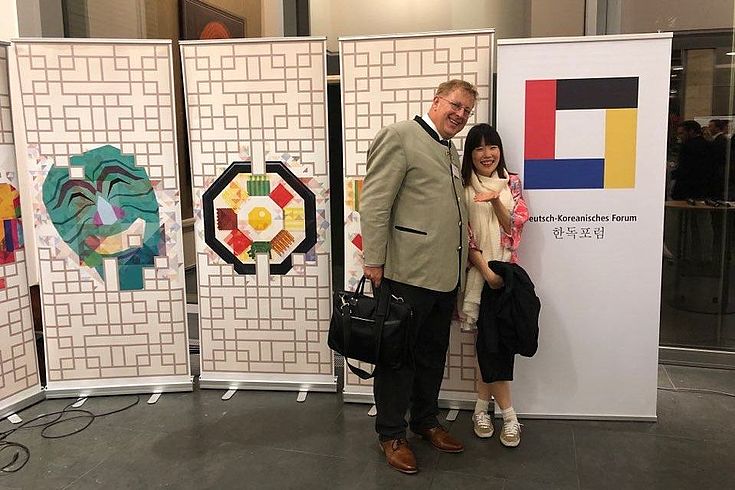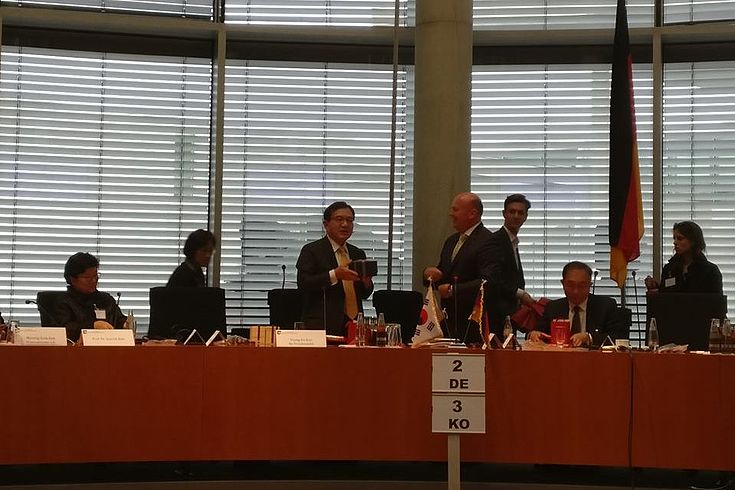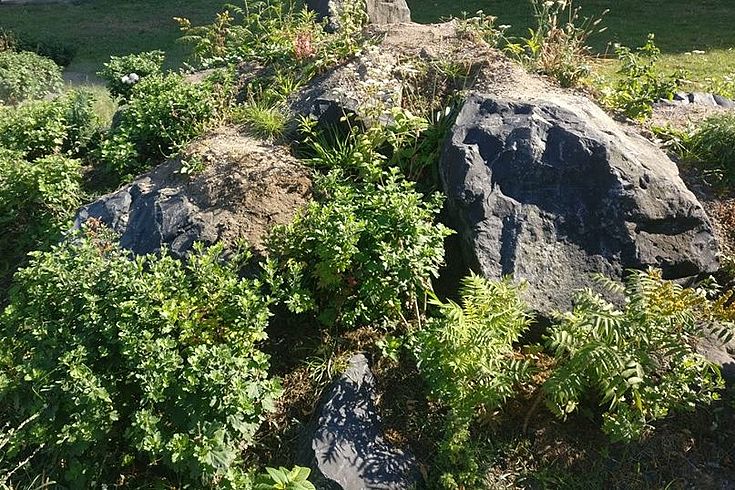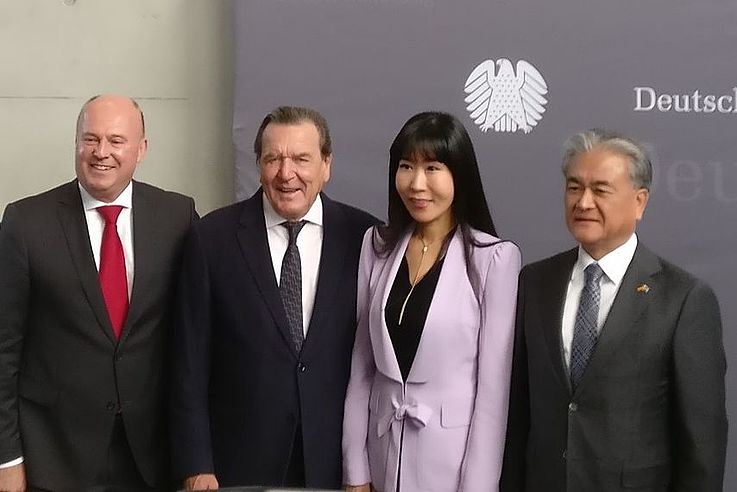Forum
18th German-Korean Forum in Berlin
Dr. Seliger representative of the Hanns Seidel Foundation Korea also attended the Forum. The German Co-chairman of the forum, Hartmut Koschyk, former Parliamentary State Secretary, could welcome, among others, the ambassadors and several former ambassadors of both countries, the former prime ministers of the Republic of Korea, Han Myeong-Sook and Kim Hwang-Sik, the head of the German-Korean Parliamentary group in the German Bundestag, Katharina Landgraf MP and others.
On September the 19th. the Forum arranged three sessions regarding different topics over the day. In the afternoon four working groups discussed energy policy and climate, the role of Germany and Korea for world health issues, issues of gender equality in economy and science as well as digitalization.
The first session on September 19 dealt with political developments in Germany and Korea. Moderator Prof. Choe Chung-Ho, the founding co-chairman of the German-Korean forum, remembered the long-term friendship of both countries. Hartmut Koschyk explained the current volatile state of German politics. On the Korean side, first former prime minister Kim Hwang-Sik looked into the stalemate in North-South relations, and difficulties in economic development in Korea. But the main problem in Korean politics, Kim maintained, is a lack of trust in Korean society. In a second report by Kim Young-Bae, former policy secretary of the Blue House under Moon Jae-In, he defended the record of President Moon, and highlighted the achievements of the current Korean administration.
The second session, moderated by Thomas Awe, former representative of Konrad-Adenauer-Foundation in Korea, China, and Japan, dealt with the insecure foreign policy outlook of Korea and Germany. Prof. Dr. Yoon Young-kwan, former Korean Minister of Foreign Affairs, gave an overview of various trouble spots surrounding Korea – including the US-China trade conflict, the conflict with Japan and the uncertainty on the Korean Peninsula – and called for more institutionalization and multilateralism to overcome conflicts. Prof. Dr. Gerd Sabathil, former Asian Director at the European Union and EU Ambassador to Korea, looked into the European conflict lines, like Brexit, and compared it to the situation in Asia. In a lively discussion among other Prof. Dr. Lee Eun-Jeung of Free University of Berlin, proposed a stronger European and German engagement on the Korean Peninsula through education and capacity-building efforts.
The third morning session had a very different topic – artificial intelligence (AI) and digitalization. Soyeon Schröder-Kim of NRW.Invest moderated a panel consisting of Prof. Dr. Sang Kyun-Cha of Seoul National University, and Stefan Gelbhaar MP, a vice president of the German-Korean Parliamentary group in the German Parliament. Prof. Cha called for closer German-Korean cooperation to cope with the rise of China and other world powers. MP Gelbhaar discussed the ethical consequences of the AI. While admitting that in Germany the discussion of risks of new technologies was much more prevailing than that of chances, he called for more careful application of AI, including stringent regulation by the state.
On September 20th, the morning session took place in a very special place – the foundation Berlin Wall (Stiftung Berliner Mauer), in view of some of the few original rests of the wall once dividing Berlin into West and East. Han Myoung-Sook, former prime minister of the Republic of Korea, and Prof. Axel Klausmaier, head of the Foundation Berlin Wall, discussed with members of the German-Korean forum and German-Korean junior forum how memory politics regarding the experiences of dictatorship were carried out in Germany and Korea. The session was moderated by Dr. Bernhard Seliger of Hanns-Seidel-Foundation Korea.
The afternoon was devoted to the deliberation of recommendations of the forum, which will be delivered to the President of the Republic of Korea and the Prime Minister of the Federal Republic of Germany. In the evening, the Ambassador of Korea, Dr. Jung Bum-Goo, hosted an event to celebrate the start of the “Network Young Generation Korea – Germany”, an alumni-network of the junior forum, to foster stronger relations between the young generation in both countries.
Over the German-Korean forum, H.E. Dr. Jong Bumgoo, Ambassador of the Republic of Korea to Germany, as well as Kim Inho, attaché for unification at the Embassy of the Republic of Korea to Germany, met with Dr. Seliger of the HSF Korea to exchange views on the situation on the Korean Peninsula.
On occasion of the 30th anniversary of the fall of the Berlin wall two Korean artists, Han Seok Hyun and Kim Seung Hwoe brought together plants from North and South Korea to grow together in a space close to the former Berlin Wall as a symbolic act. The plants grow on rocks modeled after the Baekdudaegan mountain range, which has often been likened as the backbone of Korea.
As the final event of the German-Korean Forum an art performance by both Korean and German artists was held. The event took place in "Artists home", an old World War II bunker, where young Korean artists created a space for exhibitions and events.
The Hanns Seidel Foundation thanks the German-Korean Forum for this year and wishes that even in the future Korea and Germany maintain their close friendship.




